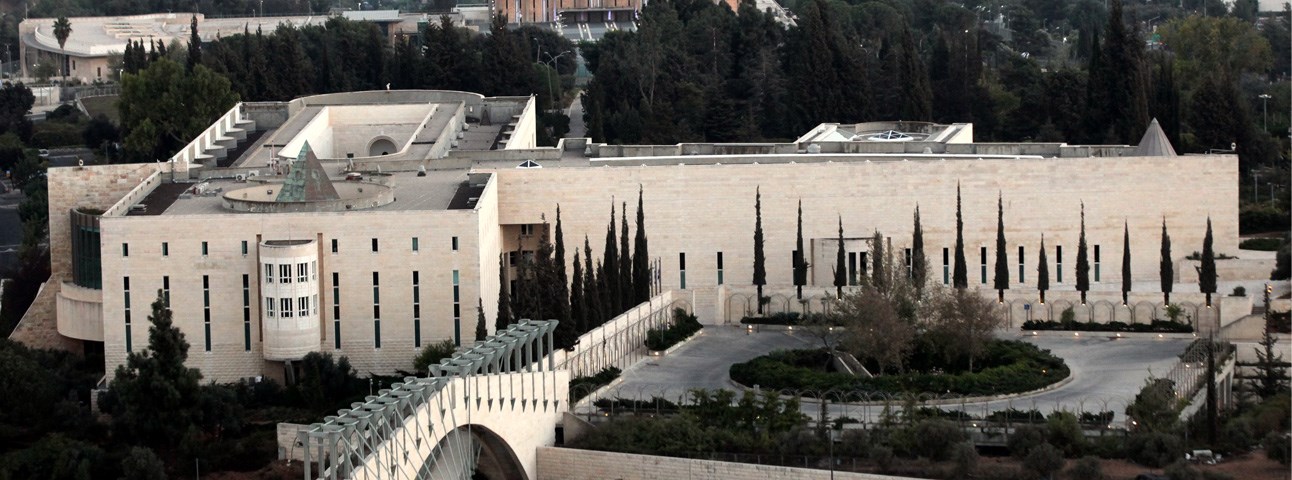

Publications Regarding override clause
Articles

Three Supreme Court Justices on Israel's Judicial Overhaul
Three former supreme court justices from Israel, the United States, and Canada—Dorit Beinisch (Israel), Stephen Breyer (US), and Rosalie Abella (Canada)— assembled at the 92nd Street Y in New York for a timely conversation on the complex legal and political drama unfolding in Israel.

Statement by the Israel Democracy Institute on the Prime Minister’s Decision to Suspend the Judicial Overhaul
The temporary suspension of the judicial overhaul provides an opportunity for the Prime Minister, as well as the leaders of the coalition and the opposition, to turn this crisis into a historic constitutional opportunity.

No Other Democracy in the World
"“In Ireland we have a judicial appointment commission which is mixed, but there are no politicians on the commission and there never has been.” Alan Shatter, Former Minister for Justice, Equality and Defense (Ireland)

There’s no ‘compromise’ in the coalition’s play for unlimited power
Written By: Prof. Suzie Navot
Slowing the overhaul is a sham. It’s still a hostile takeover of the Supreme Court and its ability to restrain the coalition

Reversing the ‘Constitutional Revolution’
Written By: Prof. Amichai Cohen, Prof. Yuval Shany
The second article in this series describes in depth how the Supreme Court used its authority, why it encountered a backlash, and what current proposals to limit the power of the Court to exercise judicial review over Knesset legislation look like.

The New Israeli Government’s ‘Constitutional Law Reforms’: Why now? What do they mean? And what will happen next?
Written By: Prof. Amichai Cohen, Prof. Yuval Shany
Political discontent with the power relationship between the judiciary and the political branches has been percolating since the 1990s, often in connection with criminal proceedings against senior politicians. Prof. Amichai Cohen and Dr. Yuval Shany provide context for the ongoing debate concerning recent legal developments in Israel, so that outside observers can follow them more closely.

Does Israel Really Need Judicial Reform? 5 Better Ways to Fix Judiciary
Written By: Prof. Suzie Navot
5 other ideas for upgrading Israel's judicial system – without destroying democracy, doing away with the mechanisms for oversight of the government or harming our basic rights.

It’s Just about Unlimited Power – and Nothing Else
Written By: Prof. Suzie Navot
The recently published opinion by the Attorney General, Adv. Gali Baharav-Miara, makes clear that the proposal "reform" makes no attempt to enhance the balance among the branches of government: It is quite simply a demand for unlimited government power.

The Proposed “Reform” of the Judicial System Poses Risk to the Israeli Economy
Written By: Prof. Jacob Frenkel, Prof. Karnit Flug
Debilitating the judicial system would deal a blow to overseas investors’ motivation to invest in Israel and lead to a sharp drop in its credit rating. We need only look at the precedents of Turkey, Hungary, and Poland, to understand just how serious the threat is.

Checks and Balances: The Override Clause and Its Effect on the Three Branches of Government
Written By: Prof. Amichai Cohen
The debate surrounding the Override Clause should really focus on the disproportionate power of the Knesset and not on the power of the Supreme Court. All other democracies have structural mechanisms that limit the concentration of power in the hands of one institutions - we must create such a mechanism in Israel as well.

Overriding the People of Israel
Written By: Prof. Suzie Navot
If Netanyahu's new government implements its plans, human rights may soon depend on majorities. Israel's delicate political structure makes this possible.

#Fix It, Don’t Destroy It
The Israel Democracy Institute’s special conference today (December 12th) focused on the implications of the proposed judicial reforms that have been proposed by members of the incoming coalition.

The Proposed High Court Override Clause Will Reverse Gender Equality Gains
Written By: Adv. Anat Thon Ashkenazy
The new coalition's shortage of women and its proposed High Court override clause are a danger to the struggle for gender equality in Israel.

Judicial Reform in Israel
Written By: Prof. Suzie Navot
In this edited transcript of her conversation with BICOM Director Richard Pater, Vice-President of Research at the Israel Democracy Institute Professor Suzie Navot argues that judicial reforms proposed by the right-wing bloc – to Knesset override of the Supreme Court, executive immunity, and the appointment of judges – threaten Israeli democracy and the already fragile separation of powers.

Judicial Reform
Written By: Prof. Suzie Navot
Prof. Suzie Navot sits down with Richard Pater of Bicom, to discuss judicial reform. Prof. Navot explains the background of Israel’s legal system, its uniqueness among other parliamentary democracies and the significance of potentially implementing an override clause.

The Override Clause Explainer
Written By: Dr. Amir Fuchs
Turning court rulings into a “recommendation” that the Knesset could override, is likely to exacerbate tensions that already exists between the Supreme Court and the Knesset.

The Override Clause—Canada and Israel
Written By: Prof. Tsvi Kahana
Democracies ensrhine onstitutional rights, and give the court the power to protect them, out of concern that the legislator may act rashly, or even tyrannically - so then why should we "override" the court's authority - when we have no other constraints
